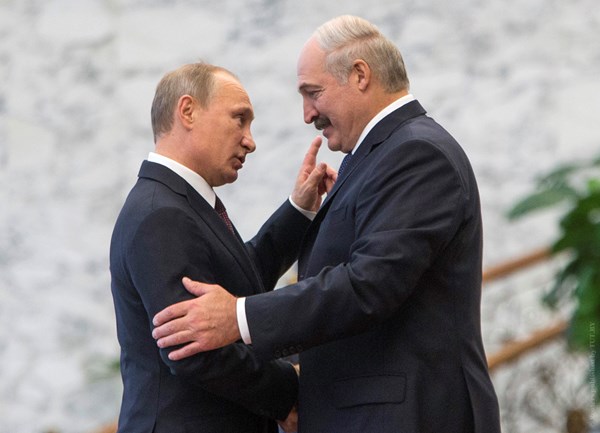Lukashenko urges Putin to save Belarusian ruble
The threat of a full-fledged currency crisis in Belarus forces the self-proclaimed President, Alexander Lukashenko, to make concessions on the key direction of integration with Russia, in which he has been holding defense for years. This is the ability to control and print his own national currency.
After the imposition of US sanctions, which cut off the Belarusian economy from a fifth of export revenues, Lukashenko began to cautiously hint at the need to help maintain the Belarusian ruble exchange rate.
"One of the top priorities" within the Eurasian Economic Union (EAEU) "is to work out the issue of coordinated measures to maintain exchange rates," he said. Lukashenko added that he "welcomes the development of the common payment space within the union" and considers it important to "continue the work to build a common financial market".
Lukashenko needed support from the EAEU to maintain the Belarusian ruble exchange rate after Washington reinstated sanctions against nine state-owned companies in Belarus, including Belneftekhim and the country's largest refinery Naftan.
By processing Russian oil, which is supplied to Belarus at a discount, refineries provide Belarus with one in five dollars of foreign exchange revenue coming into the economy.
According to Argus Media, in May Belarus began to have problems with the sale of oil products abroad as European banks began to refuse to finance transactions. Oil traders fear that soon similar sanctions will be imposed by the European Union, after which export opportunities will close not only in dollars, but also in euros.
Meanwhile, the foreign exchange reserves of the Belarusian Central Bank are rapidly dwindling. From January 2020 to April 2021, their volume collapsed by 25%, to $6.9 billion. At the same time, only $2.8 billion of liquid assets are left.
Belarus has already reached the IMF's critical threshold, which recommends keeping the equivalent of three months of imports in foreign currency reserves. Belarus' external debt exceeds foreign currency reserves by 6 times and amounts to $42.1 billion dollars (as of January 1).
Lukashenko is aware of the danger and is preparing for the severe currency crisis in the country. On 21 April, he signed a decree giving the Central Bank the right to prohibit foreign exchange and currency transactions, set limits and deadlines for such transactions, and to require special permission to buy and sell foreign currency.
In addition, the Belarusian National Bank will be able to de facto confiscate the currency from the accounts of legal entities, forcibly converting it into Belarusian rubles, as well as limit the opening of accounts in foreign banks.
